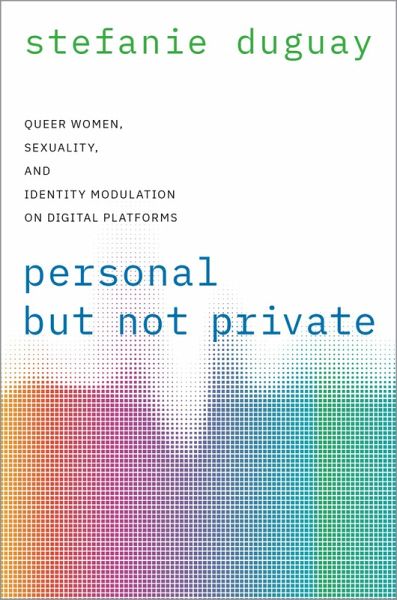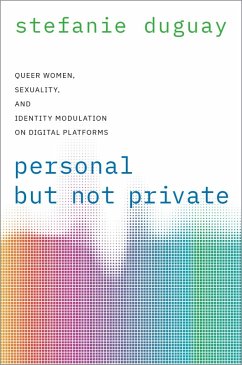
Personal but Not Private (eBook, ePUB)
Queer Women, Sexuality, and Identity Modulation on Digital Platforms
Versandkostenfrei!
Sofort per Download lieferbar
12,95 €
inkl. MwSt.
Weitere Ausgaben:

PAYBACK Punkte
6 °P sammeln!
Privacy has become a pressing concern for many users of digital platforms who fear legal or social liability for sharing personal details online. Yet for queer women and others, an emphasis on privacy fails to reflect the creativity and struggles of everyday people seeking to represent themselves and form meaningful connections through social media. Personal but Not Private explores how queer women share and maintain their identities through digital technologies despite overlapping technological, social, economic, and political concerns. Focusing on representations of sexual identity through T...
Privacy has become a pressing concern for many users of digital platforms who fear legal or social liability for sharing personal details online. Yet for queer women and others, an emphasis on privacy fails to reflect the creativity and struggles of everyday people seeking to represent themselves and form meaningful connections through social media. Personal but Not Private explores how queer women share and maintain their identities through digital technologies despite overlapping technological, social, economic, and political concerns. Focusing on representations of sexual identity through Tinder, Instagram, and Vine, this volume uncovers how queer women are continuously engaging in identity modulation, or the process through which people and platforms adjust or modify personal information, to form relationships, increase their social and economic participation, and counter intersecting forms of oppression. While queer women's representations of sexual identity give rise to publics and counterpublics through intimate and collective self-representation, platform-specific elements like design and governance place limitations on queer women's agency and often make them targets of censorship, harassment, and discrimination. This book also considers how identity modulation can be applied to a range of people negotiating digital contexts and promotes tangible changes to digital platforms and their broader social, economic, and political structures to empower individuals and their personal sharing on social media. Bringing together personal interviews and empirical research, Personal but Not Private offers a new lens for examining digitally mediated identities and highlights how platforms act as complicated sites of transformation.
Dieser Download kann aus rechtlichen Gründen nur mit Rechnungsadresse in A, B, BG, CY, CZ, D, DK, EW, E, FIN, F, GR, HR, H, IRL, I, LT, L, LR, M, NL, PL, P, R, S, SLO, SK ausgeliefert werden.













